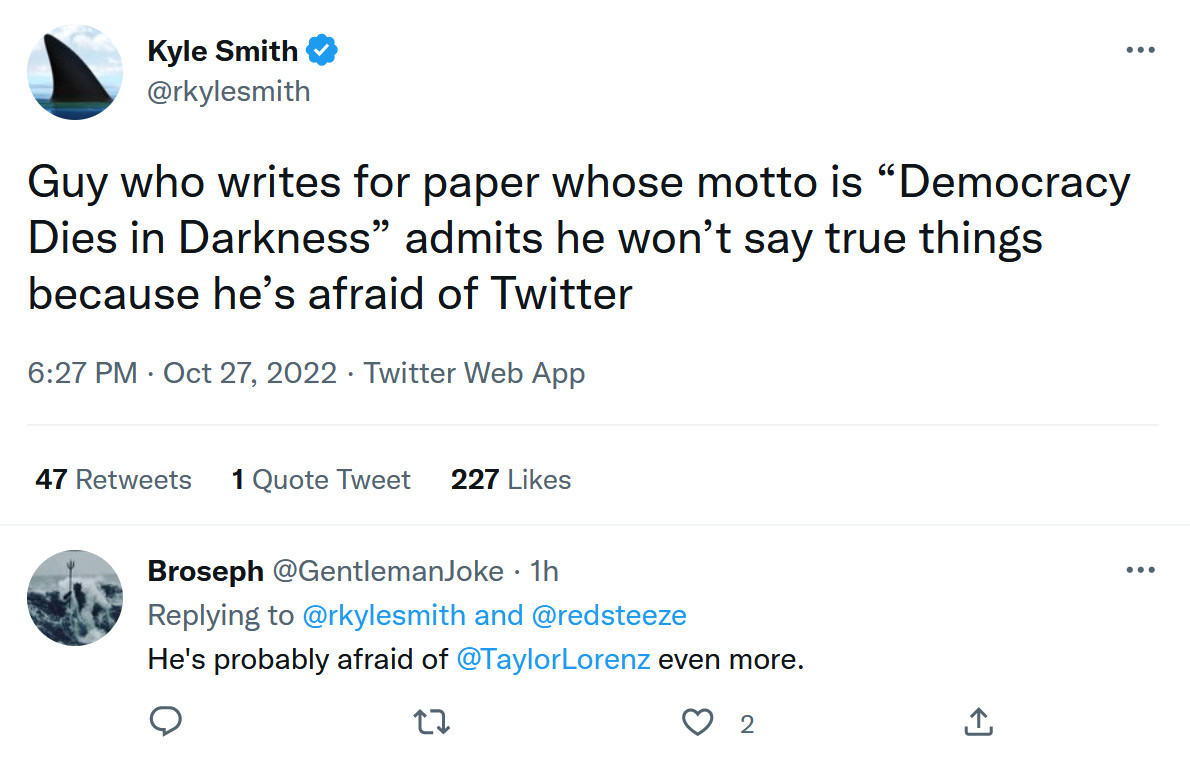“He set me on fire and threw me in the garbage and used my reverence for the institution against me,” Bennet recently told Ben Smith of Semafor. “This is why I was so bewildered for so long after I had what felt like all my colleagues treating me like an incompetent fascist.”
THE WAPO’S ERIC WEMPLE: James Bennet was right.
Controversy over an op-ed by Sen. Tom Cotton (R-Ark.) consumed the New York Times in June 2020 and claimed the job of then-editorial page editor James Bennet. Two-and-a-half years later, Bennet has shared some thoughts about the episode — and, in particular, the role of Times Publisher A.G. Sulzberger.
That may sound like the angst of a guy who’s still disgruntled at losing his job. And it is, for a compelling reason: Bennet is right. He’s right about Sulzberger, he’s right about the Cotton op-ed, and he’s right about the lessons that linger from his tumultuous final days at the Times.
is outburst in Semafor furnishes a toehold for reassessing one of the most consequential journalism fights in decades. To date, the lesson from the set-to — that publishing a senator arguing that federal troops could be deployed against rioters is unacceptable — will forever circumscribe what issues opinion sections are allowed to address. It’s also long past time to ask why more people who claim to uphold journalism and free expression — including, um, the Erik Wemple Blog — didn’t speak out then in Bennet’s defense.
It’s because we were afraid to.
More here, in an article that isn’t paywalled: Our ‘cowardice’ prevented us from defending James Bennet amid NYT’s Tom Cotton op-ed uproar: WaPo media critic.
“In initially sticking up for the Times’s role in publishing controversial fare, Sulzberger had it right. The paper had published an opinion by a U.S. senator (and possible presidential candidate) advocating for a lawful act by the president,” Wemple wrote.
Wemple knocked the Times staffers who labeled Cotton’s op-ed a “danger,” writing “It was an exercise in manipulative hyperbole brilliantly calibrated for immediate impact.”
“The Erik Wemple Blog has asked about 30 Times staffers whether they still believe their ‘danger’ tweets and whether there was any merit in Bennet’s retort. Not one of them replied with an on-the-record defense. Such was the depth of conviction behind a central argument in l’affaire Cotton,” Wemple wrote.
The Post media critic admitted he and journalists broadly mishandled the episode that resulted in Bennet’s exit.
“It’s also long past time to ask why more people who claim to uphold journalism and free expression — including, um, the Erik Wemple Blog — didn’t speak out then in Bennet’s defense. It’s because we were afraid to,” Wemple wrote. “Our criticism of the Twitter outburst comes 875 days too late. Although the hollowness of the internal uproar against Bennet was immediately apparent, we responded with an evenhanded critique of the Times’s flip-flop, not the unapologetic defense of journalism that the situation required.”
“Our posture was one of cowardice and midcareer risk management. With that, we pile one more regret onto a controversy littered with them,” Wemple added.


